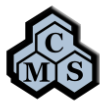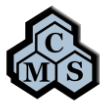COMPANY VOLUNTARY ARRANGEMENTS
0800
567 7780


HELPING BUSINESSES SUCCEED
What are Company Voluntary Arrangements?
Company Voluntary Arrangements were introduced by the 1986 Insolvency Act and are designed to give a limited company protection from its creditors while it tries to sort out its financial problems.
Often this will involve coming to an arrangement with the creditors to pay back only a part of the debt owed to them over a period of time. The timescale can be up to five years and normally, monthly payments will be made to settle the debt, although a CVA can incorporate any deal that is acceptable to the creditors (for example the selling of a property).
An insolvency practitioner will act as the person in charge of the CVA. Before the Arrangement has been agreed by the creditors the insolvency practitioner is called the Nominee and when the deal has been agreed with the creditors he will become the Supervisor of the Arrangement. The insolvency practitioner will charge a separate fee for both these activities -
It is the Nominee’s duty to assist the directors in the preparation of the CVA proposal. This will include such things as a company history -
It is the Supervisor’s duty to collect in the payments made by the company (normally monthly payments are made) and to distribute them to the creditors. These distributions to the creditors are usually made once a year and the payments are called dividends. Frequently, a CVA will not be able to be completed until a specific percentage of the original debt has been repaid. For example, the agreed percentage may be 75% and this is the amount of total dividend payable. It is important to note that the Nominee and Supervisor fees are on top of the total dividend payable.
Directors should be aware that an insolvency practitioner is obliged to advise the company as a legal entity and not the directors. This advice is directed at what is best for the creditors of the company within the insolvency tools available. There may be other solutions that an insolvency practitioner will not advise the directors about as those solutions are not within their legal remit. Directors should be encouraged to seek alternative independent advice -
Potential Problems
While this gives the company time to resolve its problems, it is important to understand the downsides of a CVA. Many potential customers will have a bidding or application process for new orders and many of them will automatically disqualify any company in a CVA as they take the view that the company could collapse before the new order is completed. Sales could be badly effected. Some suppliers will not wish to do business with a company in a CVA for similar reasons -
Many banks will go into “recovery mode” if a company enters a CVA and will want to recoup any borrowings the company may have with them. Similarly, some finance companies take a negative view of a CVA and some invoice discounting organisations will withdraw their facilities.
It is important the directors understand all the implications before putting the company into a CVA. Call us today to discuss your situation without obligation.
0800 567 7780